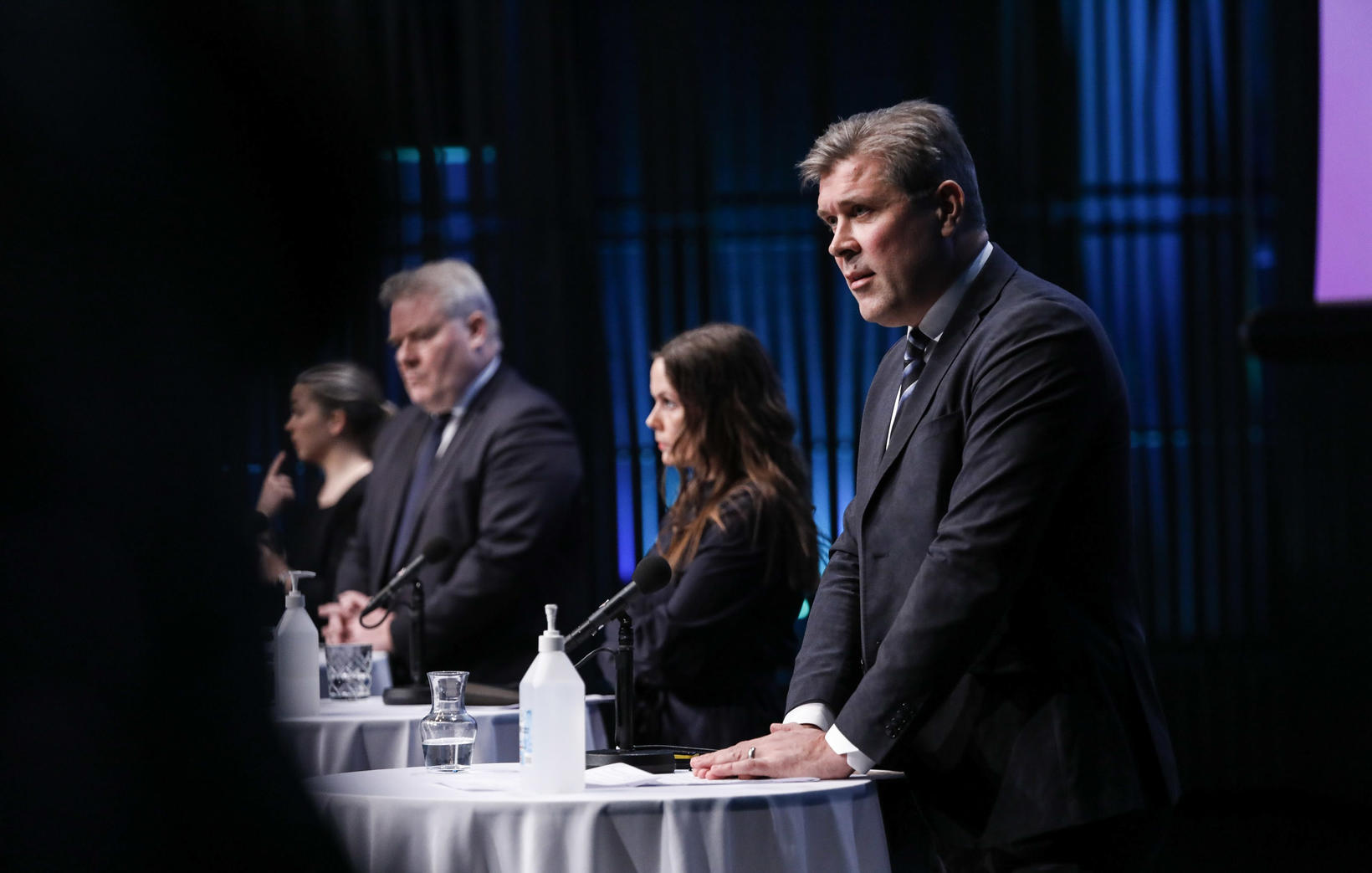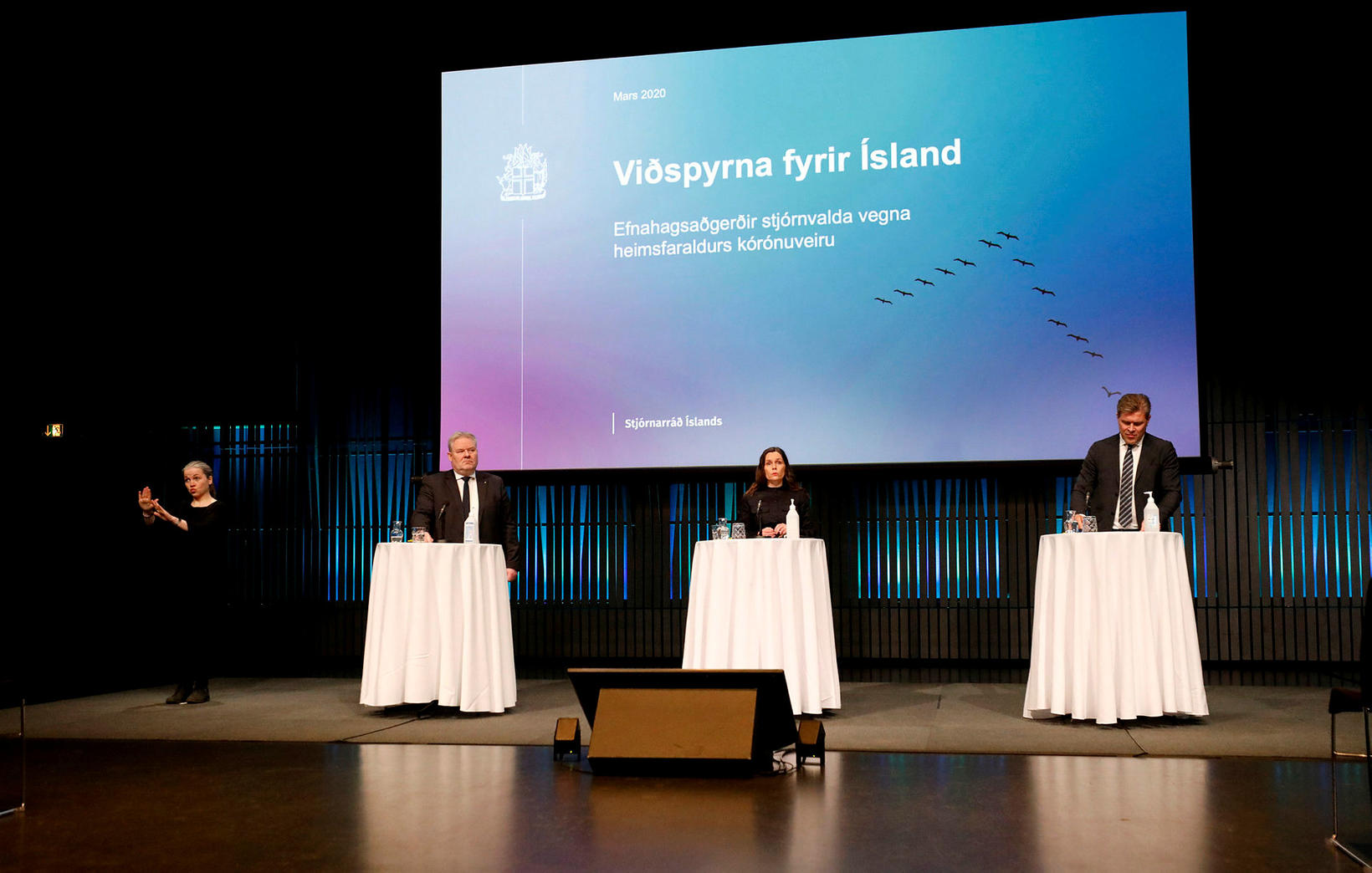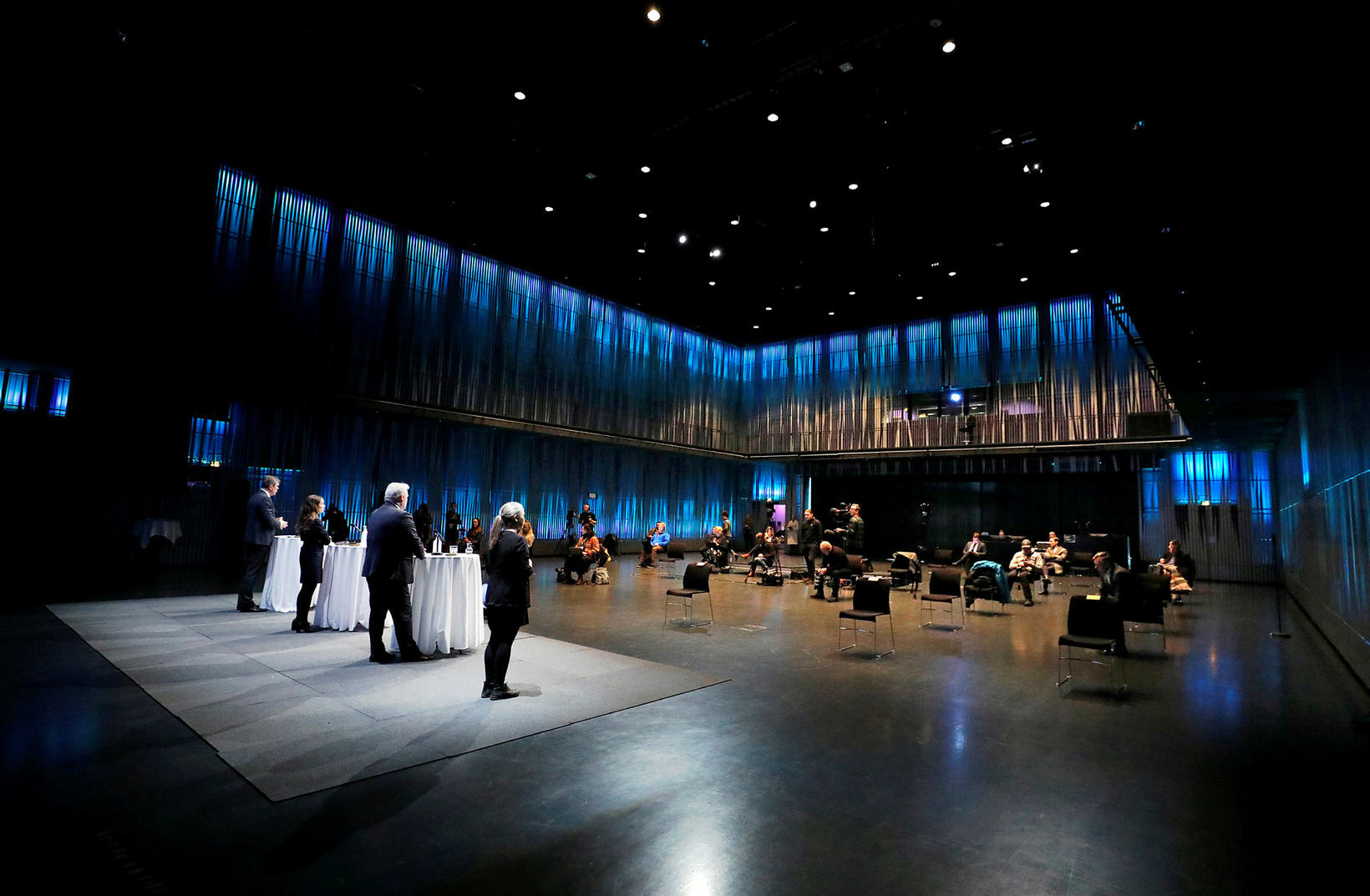Sweeping Economic Measures in Response to Pandemic
From the press conference Saturday. From left: Minister of Transport and Local Government Sigurður Ingi Jóhannsson, Prime Minister Katrín Jakobsdóttir, and Finance Minister Bjarni Benediktsson. mbl.is/Eggert Jóhannesson
The Icelandic government announced sweeping economic measures Saturday, intended to limit the economic impact of the COVID-19 pandemic.
A total of ISK 230 billion (USD 1.6 billion; EUR 1.5 billion), representing nearly 8 percent of Iceland’s GDP, will be provided to stimulate the economy during this difficult time. These are the largest economic measures in Icelandic history.
The measures are threefold, aiming to protect the livelihood of individuals and companies, protect the foundations of society, and, finally, to create a major investment initiative.
They entail the following:
The Icelandic government will take on up to 75 percent of salaries
State-backed bridging loans for companies will be provided
Deferral of tax payments
Financial support for the tourism sector
One-off child benefit payment
Access to third-pillar pension savings (private pension savings)
Refund of VAT for construction projects
Public projects will be accelerated – investment in technical infrastructure
The economic package was introduced at a press conference Saturday by Prime Minister Katrín Jakobsdóttir, Finance Minister Bjarni Benediktsson, and Minister of Transport and Local Government Sigurður Ingi Jóhannsson. The Government aims to safeguard the economic livelihood of people and businesses, protect the welfare system and create strong demand in the economy.
On the government website , the plan is listed in detail:
“ Wages Secured
In order to protect jobs and employment relationships between Icelandic workers and their employers during these extraordinary times, the Government of Iceland has committed to allowing part-time workers to claim up to 75 percent of unemployment benefits, to avoid job losses.
Those who are under threat of losing their jobs will become eligible for unemployment benefits which allow them to move to part time hours for their employer and claim additional support from the Government. The benefit package allows those who cut back to as low as 25 percent of their previous employment hours or salary to boost the earnings they receive from their employer with Government support up to a combined level of ISK 700,000 per month.
The overall aim of this legislation is to encourage businesses to keep employers on their payrolls, rather than lay them off. The self-employed and freelancers are also eligible for this benefit.
Taxes Postponed
Companies will be given the opportunity to postpone the payment of taxes until next year to improve liquidity in business operations. Hotel taxes will be abolished until the end of 2021.
Reductions in bank taxes and state guarantees on loans to eligible companies are designed to increase the opportunities for lending, allowing companies to continue business and protect salary payments.
By helping companies maintain the relationship between workers and employers the time required for companies to return to business-as-usual will be shortened as circumstances change.
Focus on Households
The well-being of families and households in Iceland is at the core of these measures. Already, people under quarantine have a secure income, which is key to allowing people to make responsible decisions to reduce the spread of the virus. This short-term measure is intended to protect jobs and income during the economic downturn.
During the next 15 months, people can withdraw a monthly sum from their voluntary pension savings, to a maximum of ISK 800,000. VAT reimbursement for construction and maintenance work will increase from 60 percent to 100 percent. In addition, the VAT reimbursement provision will be extended to the third sector organisations including charities and sports associations.
Finally, a one-off child benefit payment will be made on June 1, 2020 to all families with children under the age of 18. Parents with an average monthly income below ISK 927,000 in 2019 will receive ISK 40,000 per child and those with higher income will receive ISK 20,000 per child.
Special ISK 20 bn Investment Initiative
This year, the Government of Iceland, along with local municipalities, will initiate a special project, aimed at increasing investment in transport, public construction and technology infrastructure. Government contributions to research and science will also be increased. Details of this project will be announced at a later date.”










